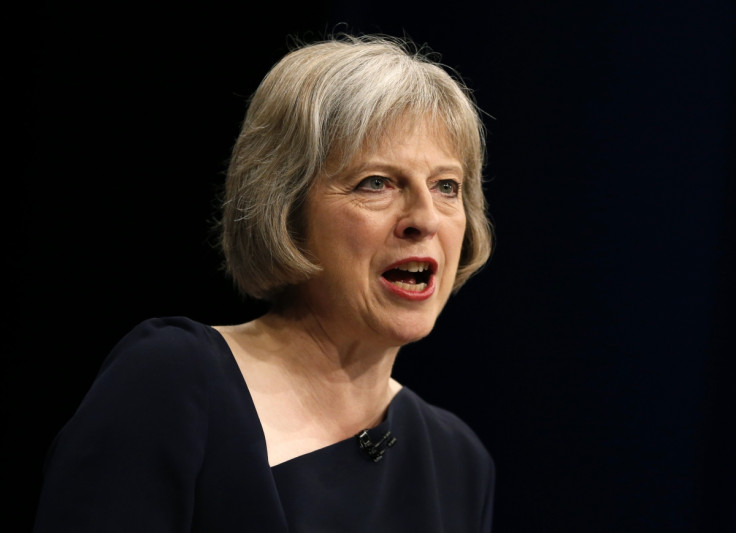Eurosceptic Theresa May calls for MPs to back EU DNA database in House of Commons debate

MPs are set to decide whether to join an EU-wide database giving police forces across the continent far-reaching access to the records of potentially innocent British citizens. The Prum agreement, to be debated in Parliament today (8 December), would see the UK share its DNA, fingerprint and vehicle registration databases with other EU countries, and vice versa.
Home Secretary Theresa May will be urging MPs to back the initiative, saying it will help catch foreign criminals committing crimes in the UK and allow for information to be shared more quickly with other EU countries. But she faces opposition from Eurosceptic MPs, many in her own party, who have previously called the database a threat to the privacy of innocent British citizens. The debate is due to take place at 4pm, while the House of Lords is due to debate the initiative tomorrow (9 December).
The Prum agreement, named after the German town in which it was signed, contained 130 EU police and criminal justice measures for which the UK originally chose to opt-out in 2013. In December last year, the UK chose to rejoin 35 measures but this did not include the EU-wide criminal database being debated today. At the time, the home secretary told MPs she had "successfully resisted rejoining" the Prum database as Britain neither had the time nor money to be ready for the deadline.
But a year later May, often described as one of the more Eurosceptic ministers in the government, is back-telling MPs they should now back the EU initiative, hoping many of those opposed to the idea will reconsider in the wake of the Paris terrorist attacks. The Home Office set out its case for joining last month, saying: "It currently takes an average of 143 days for a DNA match to be returned through the Interpol process, compared with just 15 minutes under Prum. Matches for fingerprints and vehicle registration information will be returned within 24 hours and 10 seconds respectively."
The Home Office referred to what it said was a successful UK pilot of Prum, in which 2,500 DNA profiles taken from the scenes of unsolved serious crimes in the UK were sent to France, Germany, Spain and the Netherlands. The crimes included rape, sexual assault and burglary. The pilot resulted in 118 matches with police now pursuing suspects identified both inside and outside the UK.
But some MPs have been less than impressed with the database, calling it a privacy risk and questioning the legal standards other countries abide by when requesting the records of potentially innocent UK citizens. They also say different techniques used in DNA testing across the EU could lead to a number of false positives and miscarriages of justice.
Dominic Raab, a Tory MP who opposes the Prum database, had told MPs in a previous parliamentary debate: "There are serious reservations about the impact of this on British citizens, and serious risks. The UK DNA database is far bigger than any other EU database, and innocent British citizens are far more likely to find their samples caught up in a foreign criminal investigation.
"EU authorities are more likely to assume that the availability of UK DNA samples is a strong indicator of previous criminal behaviour. We know that the EU standard for matching DNA samples is 40% less accurate than the UK standard, which accentuates the risks. Taken together, the Prum data sharing, the European investigation order and the European arrest warrant make up a rather dangerous cocktail for an unprecedented number of future miscarriages of justice."
In response, the Home Office insisted the government would insist on safeguards being put in place to avoid innocent British citizens being caught up in overseas investigations. While endorsing the government's joining of the Prum database, the House of Lords EU Home Affairs Select Committee said it was "disappointed" over how the initiative had been presented to Parliament, adding: "The Government has, once again, not allowed Parliament adequate time to scrutinise these very important measures."
© Copyright IBTimes 2025. All rights reserved.






















